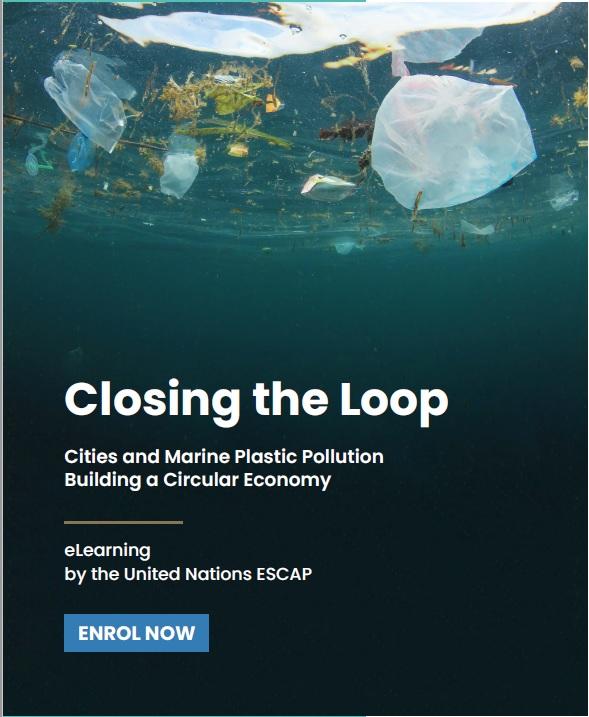On June 8th, in commemoration of World Oceans Day, the United Nations Economic and Social Commission for Asia and the Pacific (UNESCAP) launched its eLearning course on “Cities and Marine Plastic Pollution: Building a Circular Economy”. The Institute for Global Environmental Strategies (IGES) has been contributing to the module development of the course.
Of the top ten rivers around the world with the worst plastic pollution, eight are located in Asia. Furthermore, nearly 60% of global plastic pollution is said to originate from ASEAN cities, which, despite showing remarkable economic growth, have underdeveloped waste management systems. To prevent marine plastic pollution, it is essential to implement city-led approaches and strategic actions that fill the gaps in these systems.
IGES and UNESCAP signed a Memorandum of Understanding (MOU) in April 2016, and since then, the two organisations have been capitalising on their strengths to cooperate on environmental issues and sustainable development in the Asia-Pacific. From April 2020, as a partner agency of UNESCAP for the Japanese government’s Closing the Loop project, IGES has been making use of the latest digital technology to formulate action plans on limiting the leakage of plastic waste into the ocean and reducing marine plastic pollution in four target cities in Viet Nam, Indonesia, Malaysia and Thailand.
The details are available at IGES Contributes to the Development of an Online Course “Cities and Marine Pollution: Building a Circular Economy” | IGES

